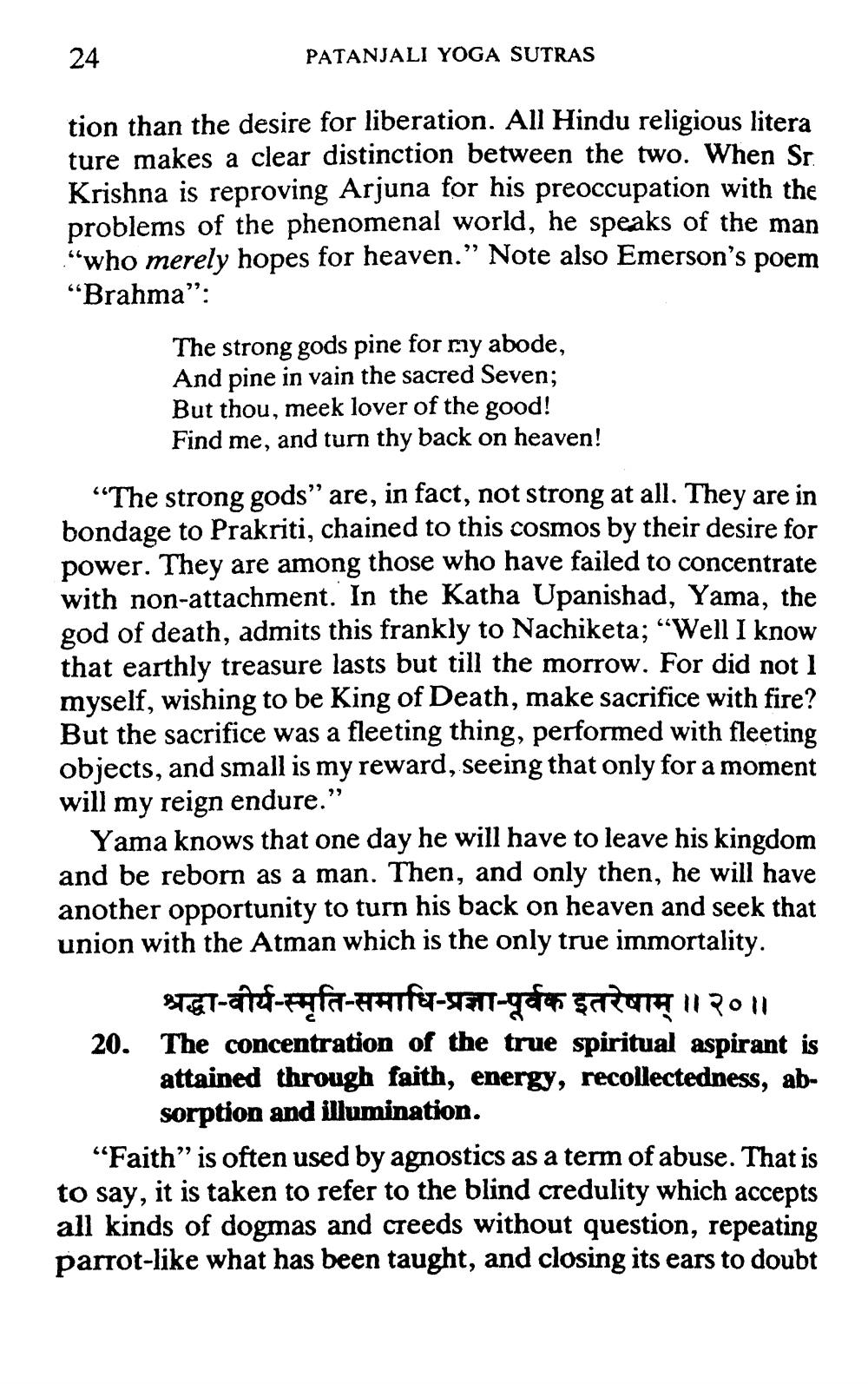________________
24
PATANJALI YOGA SUTRAS
tion than the desire for liberation. All Hindu religious litera ture makes a clear distinction between the two. When Sr. Krishna is reproving Arjuna for his preoccupation with the problems of the phenomenal world, he speaks of the man “who merely hopes for heaven." Note also Emerson's poem “Brahma":
The strong gods pine for my abode, And pine in vain the sacred Seven; But thou, meek lover of the good! Find me, and turn thy back on heaven!
“The strong gods” are, in fact, not strong at all. They are in bondage to Prakriti, chained to this cosmos by their desire for power. They are among those who have failed to concentrate with non-attachment. In the Katha Upanishad, Yama, the god of death, admits this frankly to Nachiketa; “Well I know that earthly treasure lasts but till the morrow. For did not I myself, wishing to be King of Death, make sacrifice with fire? But the sacrifice was a fleeting thing, performed with fleeting objects, and small is my reward, seeing that only for a moment will my reign endure."
Yama knows that one day he will have to leave his kingdom and be reborn as a man. Then, and only then, he will have another opportunity to turn his back on heaven and seek that union with the Atman which is the only true immortality.
stan-at-fa-Harf-n-go S UTH 11 2011 20. The concentration of the true spiritual aspirant is
attained through faith, energy, recollectedness, ab
sorption and illumination. “Faith” is often used by agnostics as a term of abuse. That is to say, it is taken to refer to the blind credulity which accepts all kinds of dogmas and creeds without question, repeating parrot-like what has been taught, and closing its ears to doubt




